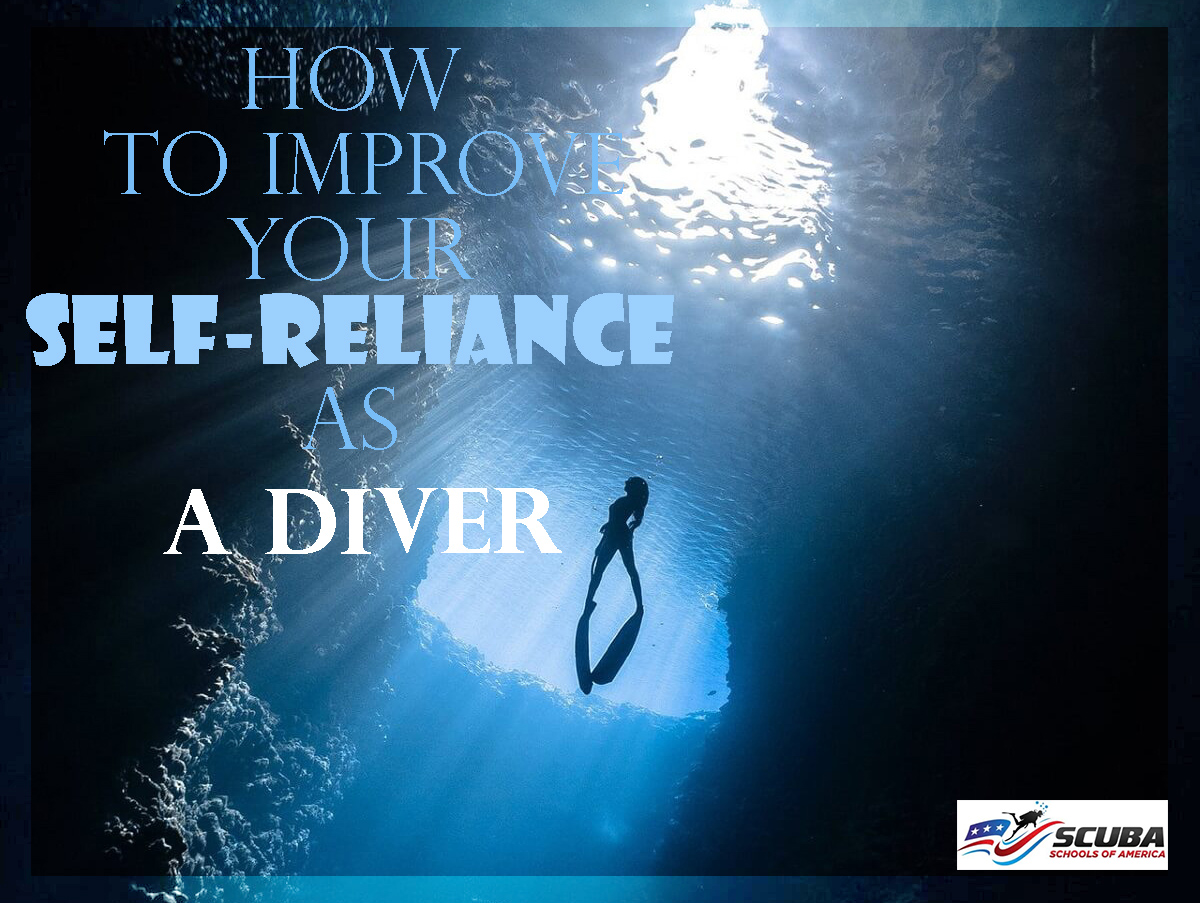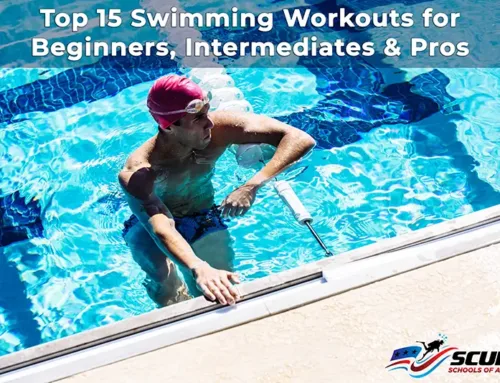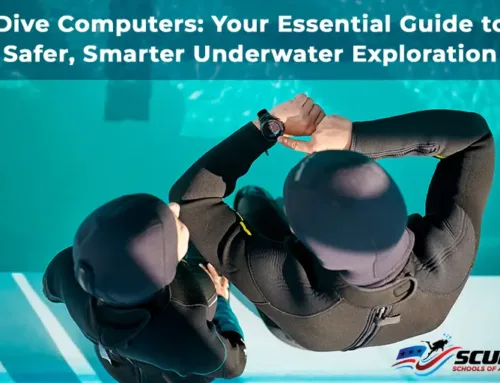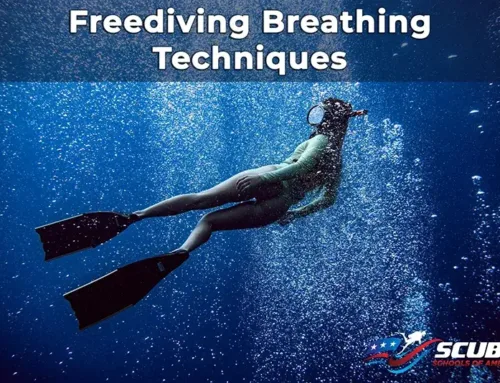Scuba diving is a water sport that promises plenty of adventure and fun. It is an amazing form of sport that enables divers to witness the hidden beauty in the depths of the sea. Today, diving has become a major attraction for people who like to explore unseen aquatic life. Diving offers a number of health benefits; it strengthens your muscles and gives flexibility to your body too. In short, diving improves your health both physically and emotionally.
Exploring the underwater world sounds quite exciting. However, you cannot take the plunge unless you have received some training in scuba diving. If you are a beginner or not proficient in diving skills, you’ll require a dive buddy to accompany you under the ocean. While you are with a dive buddy, you can feel much safer and explore the depths of the ocean comfortably. If there is oxygen leakage or any problem with the gear, your diving partner will help you fix it. But have you ever thought of becoming a self-reliant diver? Becoming self-reliant means you master the skills and build up the confidence to go diving on your own. If you plan to prepare yourself as a self-reliant diver, keep reading for some useful tips, advice, and guidelines.
Equip Yourself with Redundant Backups
Organization and serious planning are crucial for scuba diving. The world under the sea is very different from the world on land. To become self-reliant, you should, first of all, equip yourself with additional diving equipment. This means you should carry with you extra face masks, knives, torches, and other backup tools. Navigating the oceanic waters on your own requires a lot of care and attention, as you may find yourself dealing with issues such as reduced visibility. You may also get stuck in man-made traps such as fishing lines and nets. To cope with all of these, you need to properly gear yourself up before you go scuba diving.
Suppose, you get stuck in fishing lines or nets while diving. You will not be able to cut the lines with your bare hands. You will need a quality knife to do it. This should make you understand the value of a knife in such situations. Small tools such as spade-quality knives and torches will prove to be of great help if you find yourself faced with any of such scenarios in the ocean.
If your ambient light stops working, you can rely on a spare torch. Using a torch can help you communicate and see in the dark as before. Lost divers also utilize their torch to give signals to be found easily.
Carry Lots of Gas
The most important part of diving is to carry lots of gas. But for that, you have to know about SAC and SAC rates. The term SAC stands for Surface Air Consumption. This determines the breathing rate of a diver based on the depth of your dive. You can organize your dive effectively after knowing your SAC rate. Always carry gas more than you actually require. You have to make sure that in case you get a little late under any circumstances, you can come back to the surface with extra gas left in your tank. If you don’t have pressure left in the tank, this means you are bad at managing gas. And this can be dangerous for any diver.
At the same time, you should also examine your SPG gauge. SPG reads the pressure or displays the amount of gas left in the tank. A good quality SPG gauge will keep you well-informed about how much more time you can spend in the ocean and when you need to come back to the surface. Gauges can be mechanical or it is also built-in in your dive computer.
Review Your Diving Gear
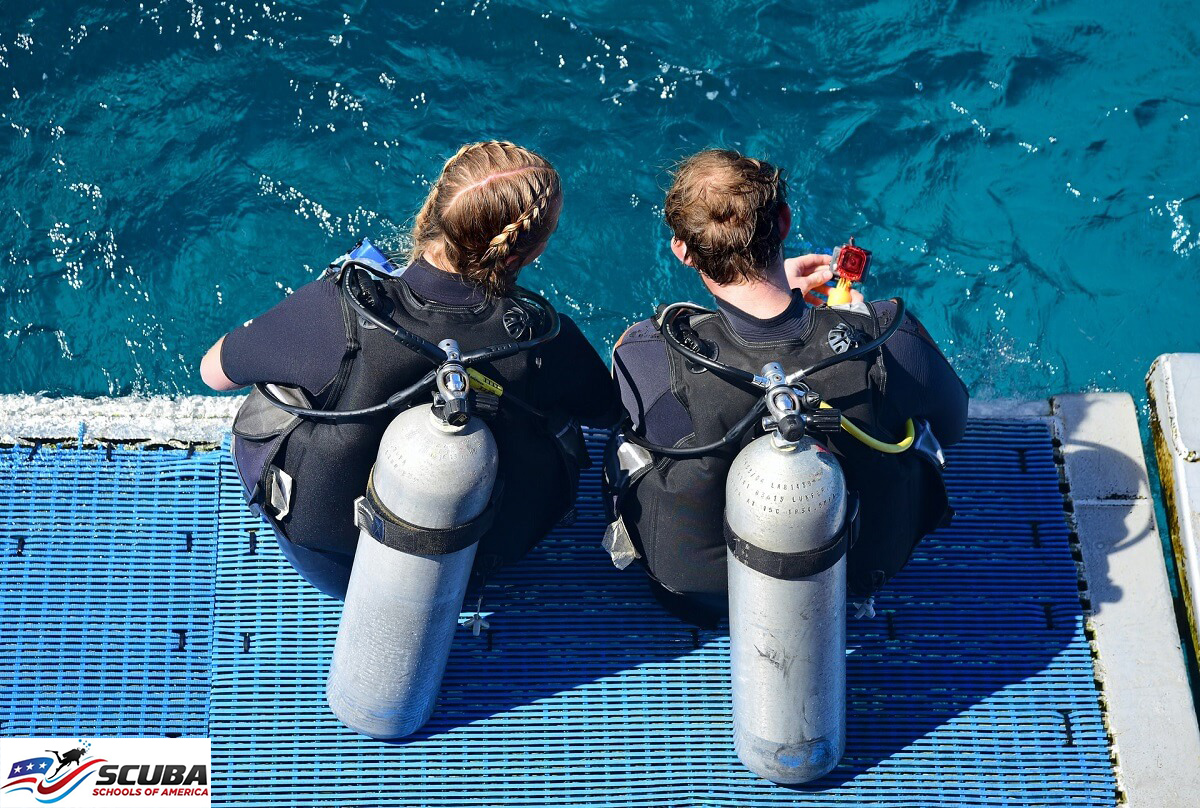
You have all the important tools – face masks, gas tanks, snorkels, wetsuits, knives, torches, etc. But a recheck of your gear is extremely essential. Before you leave for a scuba trip, recheck gauges and inspect the tanks for any kind of leakage. Check out the gauge pipes once again. Review your diving kit and other necessary belongings. Even professionals and skilled divers conduct this to make sure nothing essential is missing. A self-reliant diver must follow this routine to avoid any danger or deal with a problem if it happens. Apart from all this, you should not forget to go far for a body checkup before setting out for a diving trip.
You will need to be physically fit for diving. A body checkup will help you find out whether your heart condition is normal. It will tell you if you have good eyesight and whether your lungs are functioning properly. You’ll find your blood pressure level. If you are diagnosed with any kind of issue, you should avoid diving this time. You can go on a diving trip only when you are fit.
Being a self-reliant diver means you have the utmost safety in terms of physical fitness while you are diving under the ocean.
Improve Your Diving Skills
Inexperienced divers get nervous if they face any unexpected situations underwater. If you feel nervous when going for a dive, you have not yet become a self-reliant diver. You can build confidence only with more practice. For example, you should know how to confidently remove a face mask in an emergency situation. Many divers, who are not self-reliant, only rely on the instructions of a divemaster. You should know that any kind of emergency could arise underwater. Only those divers who have practiced their skills more and more can confidently deal with difficult scenarios and successfully come back to the surface after diving.
More practice broadens your knowledge about every component of the dive gear and how each of these functions. Skilled divers are well-versed in the use of alternative air while diving. They can easily get out of a situation such as getting entangled with fishing nets or getting stuck in a shipwreck.
To improve your self-reliance, you should practice dealing with a wide range of difficult scenarios which may arise during scuba diving. Dedicate a good amount of time in a safe environment to enhance your skills. The more you practice diving skills, the more self-reliant you will become.
It is only after you have mastered all the basic and advanced scuba skills that you can be ready to dive on your own.
Prepare Yourself to Deal with the Unexpected
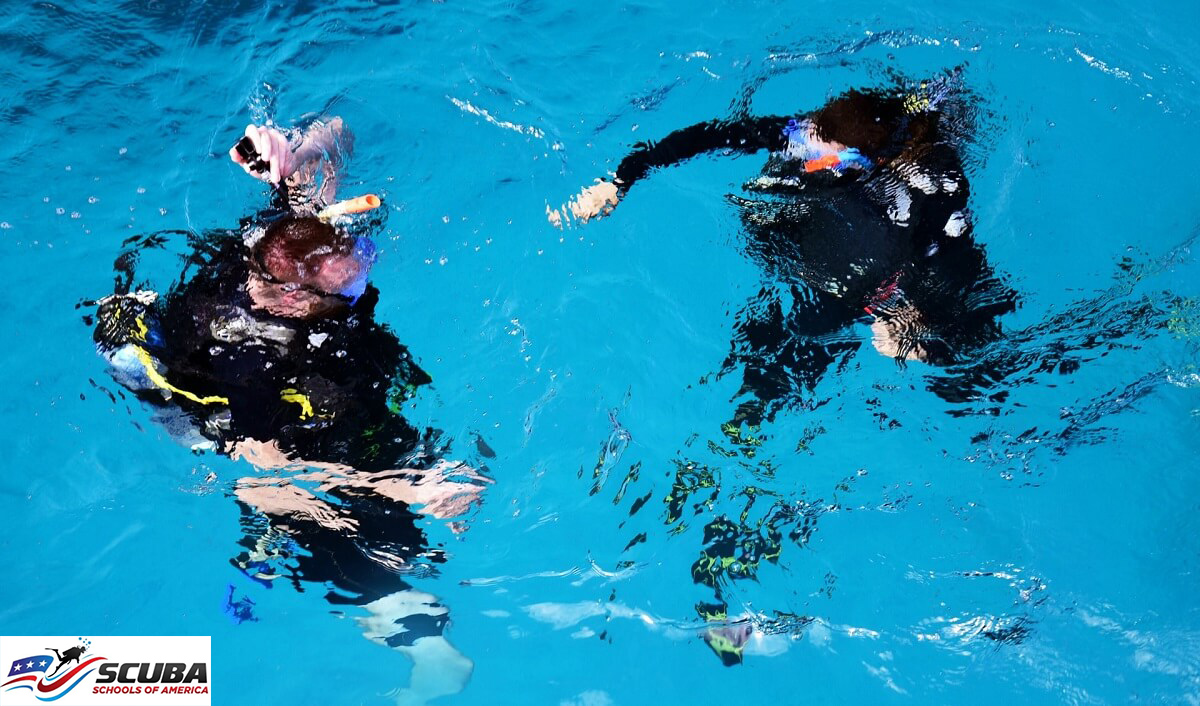
Failing to plan is planning to fail. It is of utmost importance that you plan well and prepare yourself to deal with any kind of emergency situation under the ocean. In the worst conditions, divers may feel physical and mental stress. This happens due to the change in the environment underwater. So, you should be able to be both physically and mentally fit to enjoy your diving trip to the fullest.
There are different types of diving trips such as Night Diving, Drift Diving, Deep and Wreck diving, etc. Each of these poses different kinds of challenges. Whichever type of diving you are going to undertake, you should prepare yourself for the challenges that you may face, in advance. One of the most crucial pieces of advice in this regard is to not panic. If you get panicky, you will not be able to deal with a potential danger even when you are fully equipped to cope with it. At the same time, you should believe in yourself and all the equipment and tools that you carry.
Complete a Self-Reliance Diver Course
There are self-reliance diver courses available to help beginners and inexperienced divers build skills and confidence. One of the best ways to improve your self-reliance is to get enrolled in a PADI course. PADI stands for Professional Association of Diving Instructors. The organization was established by John Cronin and Ralph Erickson. It is a scuba training organization that was instituted in the year 1966. A PADI self-reliant diver course will help you develop the skills that you need to be able to go for a dive without a partner. This course teaches you about dive apparatuses, your SAC rate, and the consumption of gas among others.
Most of all, a self-reliance diver course helps you learn and master techniques to look after yourself if any unexpected situation arises underwater. It enables you to make a reliable and organized dive plan.
Do You Want More Information?
If you plan to master the skills of scuba diving and become a self-reliant diver, you should head straight to the Scuba Schools of America. Located in Montclair, California, the school offers a range of training programs to take your scuba skills to the next level. For more information on the scuba classes, courses, and programs, send us an email or give us a quick phone call.

